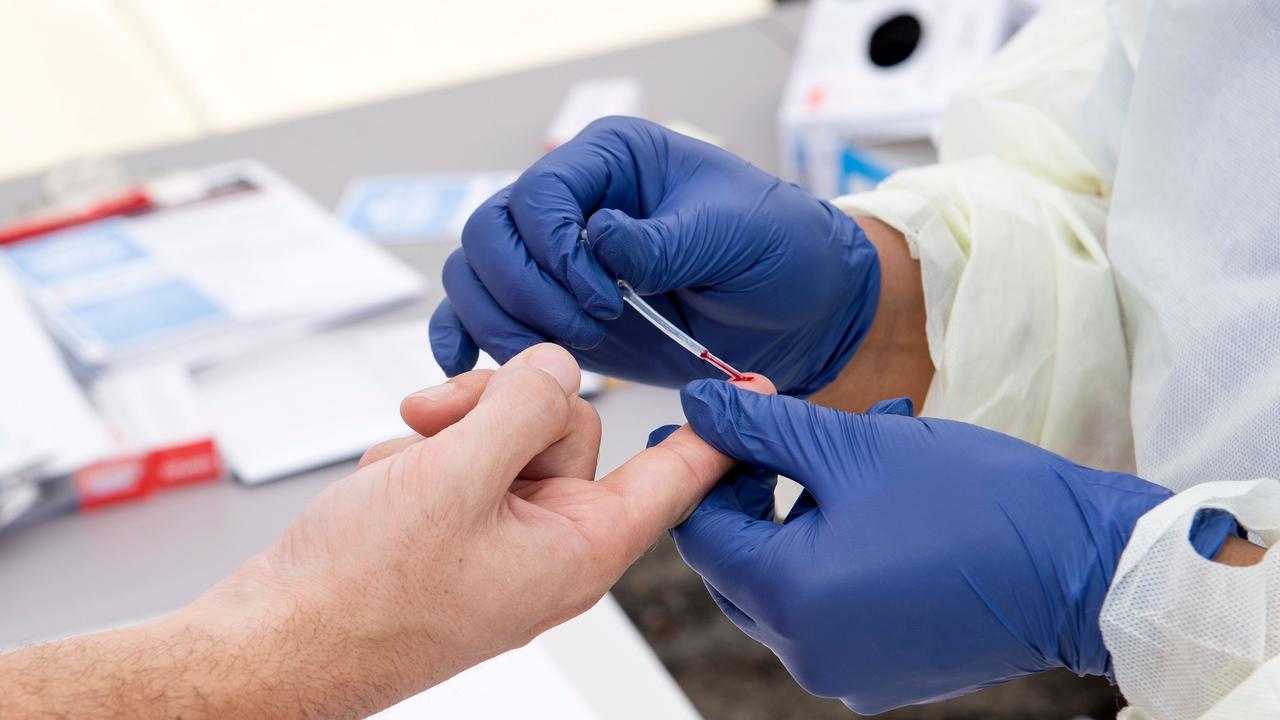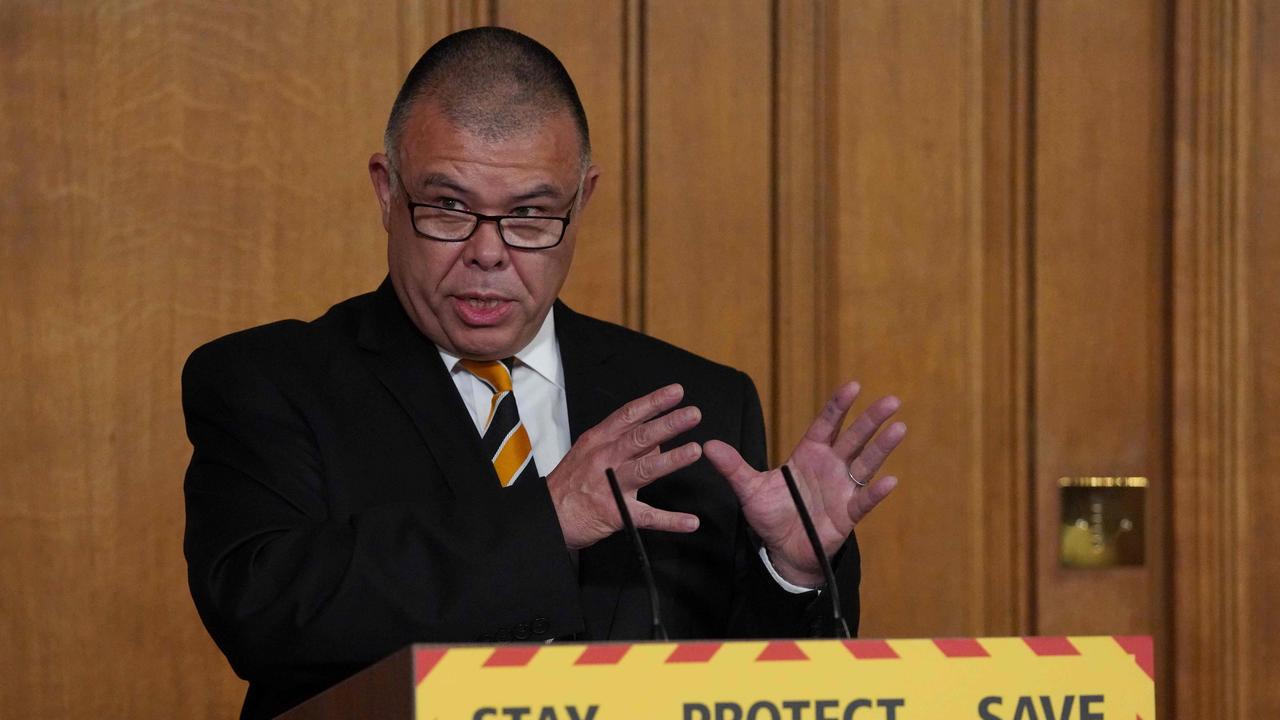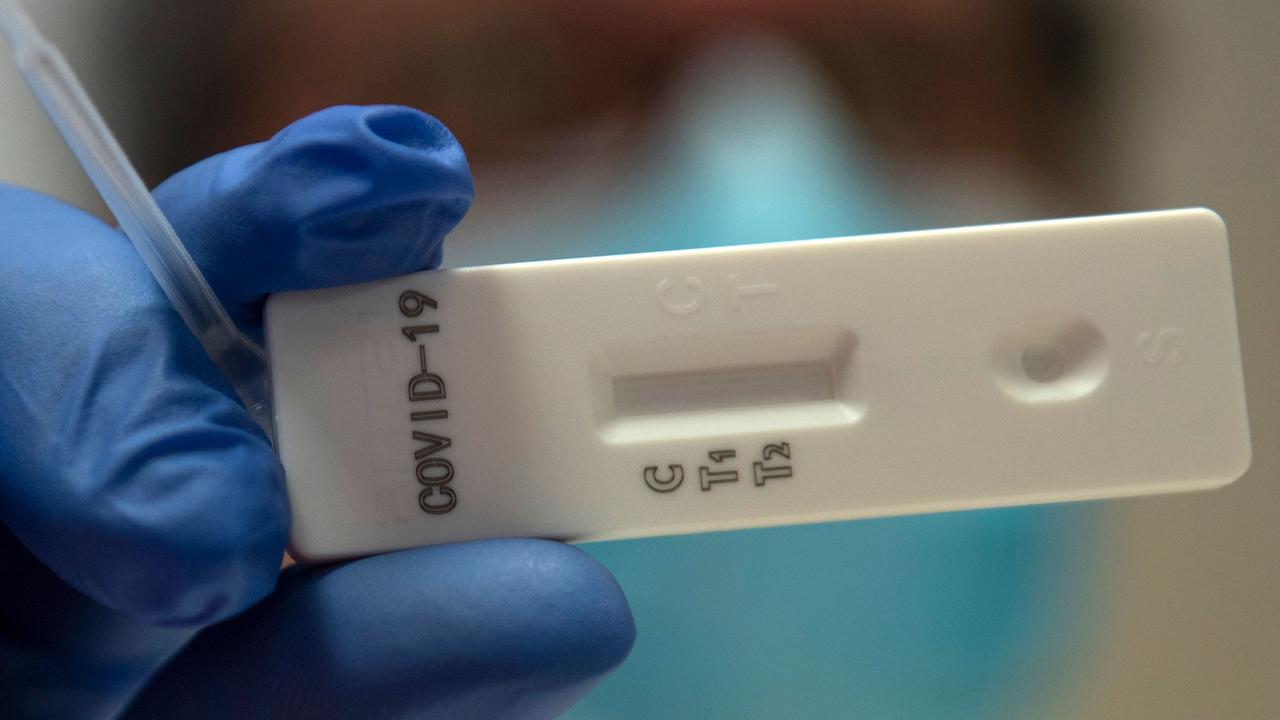Coronavirus: Britain approves ‘100 per cent accurate’ antibody test
An antibody test that scientists claim can detect with “100 per cent” accuracy whether you’ve had coronavirus has been approved in Britain.
A “very reliable” antibody test that can show whether people have previously been infected with coronavirus has been approved by health authorities in Britain.
UK government scientists claim the test, which has already been approved for use in the United States and European Union, is “100 per cent” accurate.
“I think it’s very exciting that there’s a very, very reliable antibody test,” UK Transport Secretary Grant Shapps said during the government’s daily coronavirus briefing on Thursday.
“It’s very good news. Particularly if it transpires that (antibodies) make you immune from getting the coronavirus again.”

The antibody test is manufactured by Swiss pharma giant Roche and was given the green light by Public Health England’s (PHE) research laboratory last week, which found it to be 100 per cent accurate.
The simple blood test can detect whether someone has had coronavirus and developed antibodies against it, which may provide some immunity to the disease.
UK Prime Minister Boris Johnson has previously said the tests could be a “game changer” in allowing Britain to end its national lockdown. But until now, they have not been reliable enough.
The 1.5 million tests bought by the Australian government earlier this year were found to be too inaccurate for widespread use.

England’s Deputy Chief Medical Officer Professor Jonathan Van-Tam said the tests could be rolled out “in the days and weeks to come” but would first go to National Health Service (NHS) workers and carers.
“We have been waiting for a really good antibody test to be ready,” he said on Thursday.
“What we required was a test that was highly specific – the chances of a false positive are extremely low in this test.”
However, Professor Van-Tam said it was still unclear whether people who had antibodies to the virus were protected against future infection.
“It’s not automatic that these antibodies will be lifelong,” he said.
RELATED: WHO warns against handing out ‘immunity passports’
RELATED: Coronavirus antibody tests too inaccurate for use
The World Health Organisation (WHO) has previously warned there is “no evidence” that people who have recovered from coronavirus are protected from catching the disease again.
In a scientific brief released in April, it said: “Studies show that people who have recovered from infection have antibodies to the virus. However, some of these people have very low levels of neutralising antibodies in their blood.”
The global health agency has also warned against handing out so-called “immunity certificates” to people who have antibodies, saying it could lead to a resurgence of the disease.

Several countries anxious to reboot their economies, including the UK, have floated the idea of using antibody tests to issue immunity certificates to people who have recovered from the virus, officially clearing them to leave their homes and travel to and from work.
“People who assume that they are immune to a second infection because they have received a positive test result may ignore public health advice. The use of such certificates may therefore increase the risks of continued transmission,” WHO said.
Britain has reported more than 36,000 deaths in the outbreak – the second-worst in the world – but partially lifted lockdown measures in England this week. The nation has had over 230,000 total confirmed coronavirus cases.
– with wires



